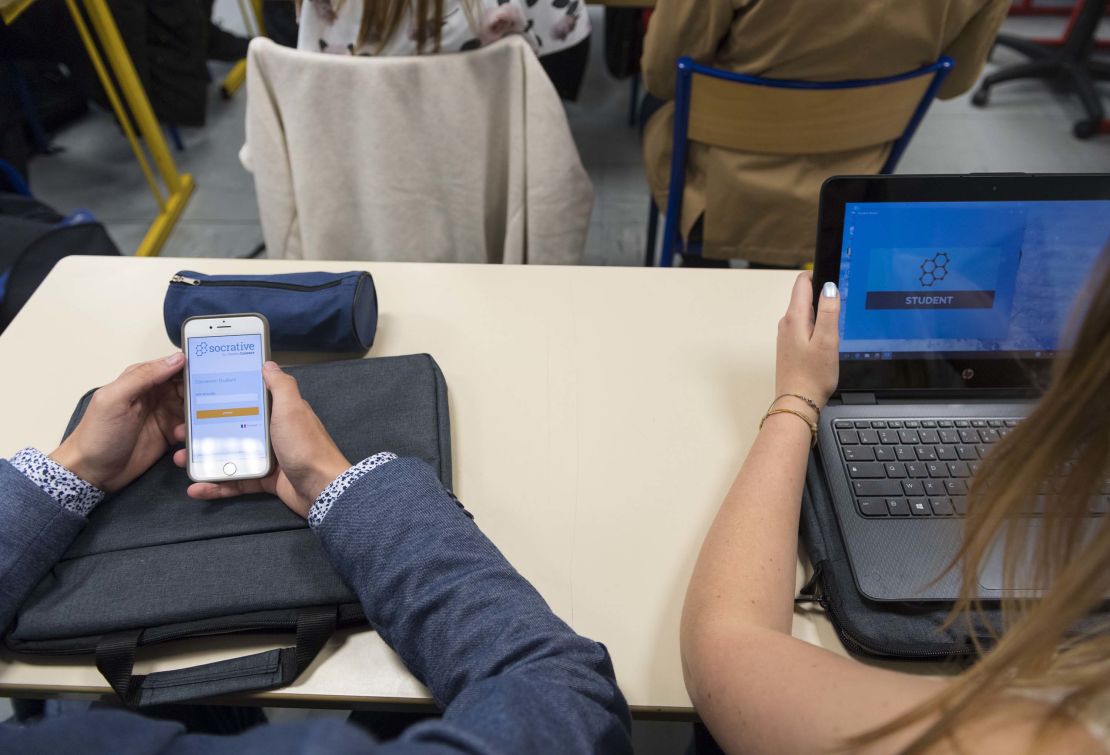French children will have to leave their smartphones and smart devices at home or switched off when they are at school starting in September.
The ban on smartphones as well as other kinds of internet-connected devices, such as tablets, applies to schoolchildren between 3 and 15 years of age, and was passed by lawmakers on Monday. French high schools, or lycées, with students 15 and older, will get to choose whether to adopt the phone ban for their pupils.
“We know today that there is a phenomenon of screen addiction, the phenomenon of bad mobile phone use… Our main role is to protect children and adolescents. It is a fundamental role of education, and this law allows it,” said Education Minister Jean-Michel Blanquer on French news channel BFMTV.
The law fulfills one of President Emmanuel Macron’s campaign promises. It passed 62 votes to one, supported by members of Macron’s centrist La République en Marche! party. Some lawmakers from the right and the left abstained, claiming the law would change little.
“This isn’t a 21st century law in our eyes, but a law from the era of news channels and binary debate,” said Alexis Corbière, a deputy from the left-wing Unbowed France party and a former teacher.
“In reality, the ban has already been made,” he added, referring to a 2010 law. “I don’t know a single teacher in this country that allows the use of phones in class.”

A law approved in 2010 banned the use of smartphones “during all teaching activity.”
The new law makes exceptions for disabled students, during extracurricular activities and for “pedagogical use.”
This is your brain on a smartphone
Our increasing dependence on smartphones has given rise to the term “nomophobia,” or “NO MObile PHOne phoBIA” – the fear of not being able to use your cell phone or other smart device. One survey from the UK showed that 66% of respondents have some form of nomophobia and 41% of those respondents said they had two or more phones in order to stay connected.
And as rates of smartphone and internet addiction rise, so too do the adverse effects of these activities on our brains.
A study from South Korea conducted on teenagers with internet and smartphone addiction demonstrated that their brains had higher levels of a neurotramsmitter that slows down neurons, resulting in reduced levels of control and attention and rendering people more susceptible to distractions.
Another study by the London School of Economics and Political Science showed that banning smartphones in schools caused a clear improvement in students’ test scores.
More that 90% of French children between the ages of 12 and 17 had mobile phones in 2016, up from 72% in 2005, according to French telecoms regulator ARCEP.
CNN’s Frank Andrews and Sam Bradpiece contributed from Paris and Arnaud Siad contributed from London.

